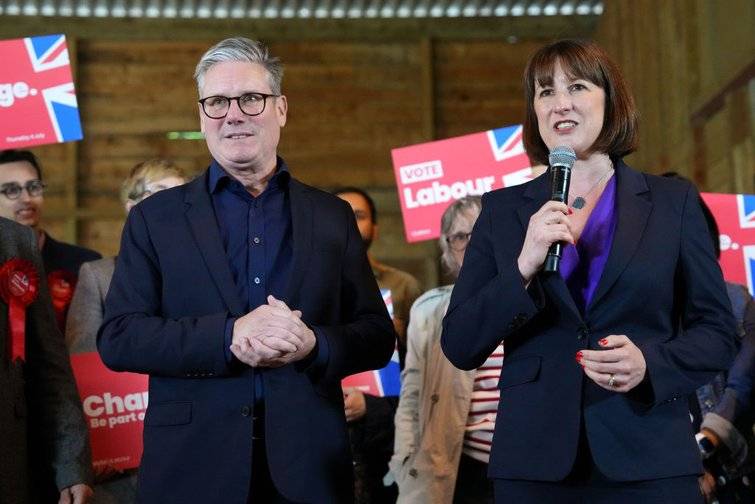2158 Views
Starmer’s Rural Backlash: How Labour’s Tax Reform Risks Tearing Britain’s Countryside Apart
Since late 2024, Britain has witnessed mounting farmer protests against inheritance tax reforms. These changes, announced in the autumn budget by Chancellor Rachel Reeves, marked a significant shift in how agricultural assets are taxed when inherited, effectively ending decades of full exemptions on farmland. What began as a fiscal adjustment to plug a £22 billion hole in public finances quickly turned into a symbol of widespread rural discontent, with demonstrations continuing into 2025. The Labour government has framed the reforms as a step toward eliminating “unfair tax privileges” that disproportionately benefit the wealthy. Yet the reaction from rural communities, especially farmers, has been one of anger and resistance, with many viewing the policy as a direct threat to the survival of family farms. This confrontation has not only exposed the financial pressures on farmers but also underscored the growing political, cultural, and economic divide between urban centers and the countryside.
The core of the issue lies in the details of the reforms. Under the new policy, each heir will receive a full exemption up to £1 million, with anything above taxed at 20 percent. On the surface, this appears generous compared to previous inheritance tax rates. However, the specific conditions of the agricultural sector challenge this perception. Most farmland is valued well above £1 million, while profit margins remain razor-thin—a problem exacerbated since Brexit. For Britain’s farming community, the reform threatens to dismantle the backbone of agriculture in the United Kingdom.
Family farms are often asset-rich but cash-poor. Their wealth is tied up in land, machinery, and livestock, leaving them with limited liquidity. When passed to the next generation, heirs may be forced to sell off land or equipment simply to meet tax obligations. Farmers argue that this process could accelerate the collapse of historic family farms, undermine production continuity, and speed up the transfer of farmland into the hands of large corporations. From their perspective, what the government calls “a step toward tax fairness” is, in practice, economic pressure and the slow erosion of small-scale farming.
These protests also highlight a deeper cultural and political divide. Many rural residents have long felt excluded from decision-making processes in Westminster. The inheritance tax reform has now become a symbol of the distance between the central government and rural Britain. Farmers believe that urban policymakers fail to grasp the realities of rural life: long working hours, volatile crop prices, and the essential role of generational continuity in sustaining small and medium-sized farms.
This sense of marginalization feeds into the widening rural–urban divide. From the countryside’s point of view, London has little interest in rural problems, focusing instead on financial elites, property developers, and the service sector. For this reason, the farmers’ protests are not only economic in nature but also a demand for recognition and respect.
Meanwhile, the government insists the reforms are necessary for fairness. Officials argue that wealthy individuals often exploit agricultural exemptions and legal loopholes to avoid paying inheritance taxes. Closing these pathways, the government claims, is a step toward justice: inheritance should not perpetuate class privilege and inequality across generations.
Critics, however, warn that the policy fails to distinguish between the productive assets of working farmers and the tax-dodging schemes of the wealthy. They contend that the burden will fall not on major landowners or passive investors but on active farmers. This could weaken incentives for agricultural investment, discourage younger generations from staying in farming, and undermine Britain’s long-term food security.
These concerns soon spilled into the streets. Since late 2024, farmers have staged tractor blockades and convoys in dozens of towns and even central London. The sight of heavy machinery rolling through urban streets drew media attention and won sympathy from parts of the public. Protesters have sought to frame their struggle as a national issue, not merely a rural one—pointing to rising energy and fertilizer costs, shrinking incomes, and growing debt. Their stories of daily hardship resonate widely, reminding citizens of the fragility of domestic food production in an unstable world.
The protests carry clear political implications. Continued unrest could further weaken Labour’s social base in rural areas while offering the Conservatives and right-wing populists an opportunity to brand themselves as champions of farmers. Economically, the uncertainty created by the reforms risks reducing investment in the farming sector, accelerating premature sales of farms to corporations, and pushing farming families out of the sector—directly impacting food security.
This tension between tax policy and productive capacity emerges at a time when global supply chains remain fragile and the fallout from Brexit unresolved. Thus, the confrontation between farmers and the government may become a central battleground leading up to the next elections.
The Starmer government came to power promising economic revival and social justice. But the inheritance tax reforms reveal its struggles to balance fiscal goals with rural realities. Instead of shielding farmers from the effects of Brexit, rising production costs, and energy crises, the reforms have tightened the squeeze on them.
As a result, farmers see themselves as victims of short-term policies that lack long-term vision. If Labour continues on this path, it risks not only failing to bridge social divides but also undermining its electoral standing. In this round of economic reforms, British farmers once again appear to be the chief losers of misguided government policy.
*Translated by Ashraf Hemmati from the original Persian article written by Amine Mahdavi

Comment
Post a comment for this article